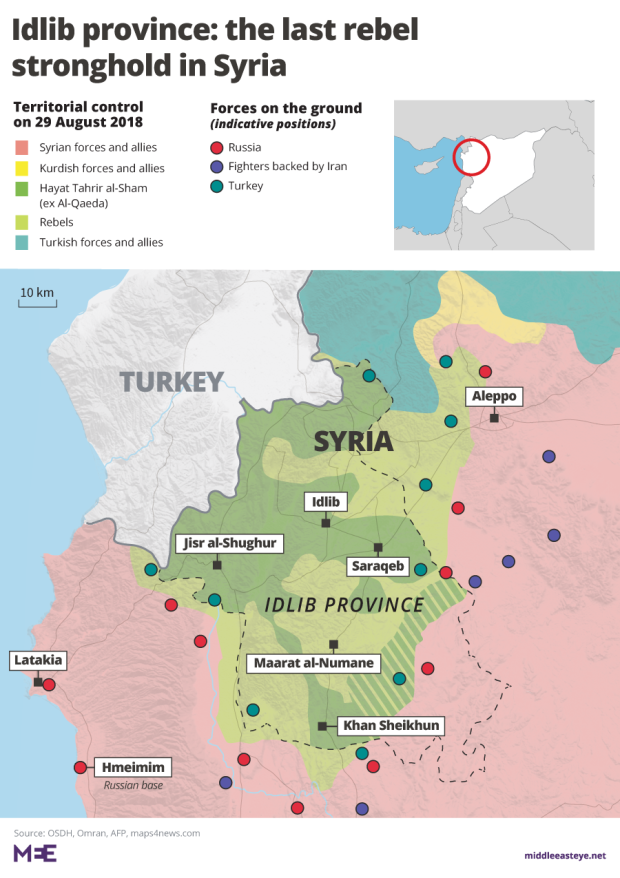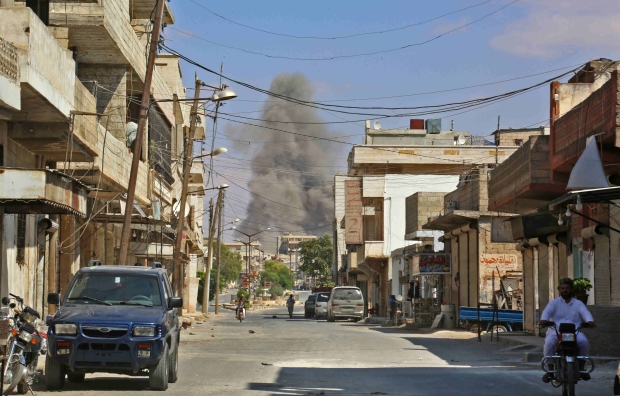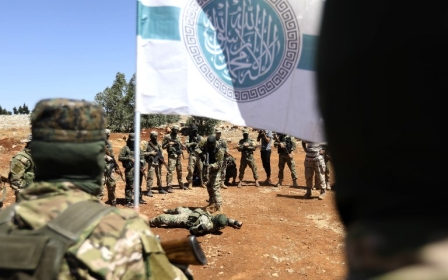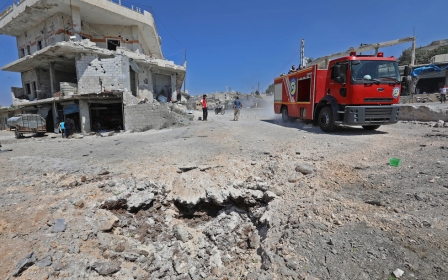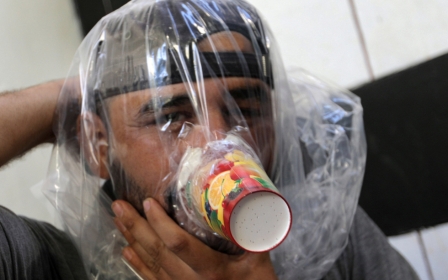Putin, Erdogan and Rouhani fail to agree on Idlib ceasefire

The presidents of Turkey, Iran and Russia on Friday failed to agree on a ceasefire that would forestall a Syrian government offensive in the rebel-held Idlib province which the United Nations fears could cause a humanitarian catastrophe involving tens of thousands of civilians.
Turkey's Recep Tayyip Erdogan, Russia's Vladimir Putin and Iran's Hassan Rouhani, meeting in Tehran for a summit of key foreign players in Syria's war, agreed in a final statement that there could be no military solution to the conflict and it could only end through a negotiated political process.
The Turkish leader said he feared a massacre and Turkey could not accommodate any more refugees flooding over its border.
Damascus has every right to take back all its territory, Russian President Vladimir Putin has told his Iranian and Turkish counterparts.
"The legitimate Syrian government has a right and must eventually take under control of all its national territory," Putin told Erdogan and Rouhani.
The Russian president also said he opposed a ceasefire because the Nusra Front and Islamic State (IS) groups located in Idlib were not part of peace talks.
However, Putin appeared to raise the possibility of peace talks with certain groups.
"We have discussed concrete measures regarding a phased stabilisation in the Idlib de-escalation zone, which stipulate... a possibility of making peace for those ready for dialogue," Putin said.
Meanwhile, the Iranian president appeared to back operations against rebel fighters but warned against harming civilians.
Fighting terrorism in Idlib is an unavoidable part of the mission of restoring peace and stability to Syria
- Iranian President Hassan Rouhani
"Fighting terrorism in Idlib is an unavoidable part of the mission of restoring peace and stability to Syria," Rouhani told his Russian and Turkish counterparts.
"But this battle must not cause civilians to suffer or lead to a scorched-earth policy."
The three countries agreed to hold their next meeting on Syria in Russia.
Humanitarian disaster
Idlib currently hosts about three million people, including one million children, according to the United Nations, and the expected government plans for an assault on the province have raised fears of a humanitarian disaster.
Over half of the civilians have already been displaced at least once from elsewhere in the country and have nowhere left to go.
Many anti-government groups have fled to Idlib as Syrian President Bashar al-Assad has gradually reasserted control over large parts of the country, and the province is the last stronghold for al-Qaeda affiliate Hay'at Tahrir al-Sham (HTS).
There are believed to be up to 30,000 fighters from mutiple armed groups in the province.
As the conflict approaches its endgame, Iran, Turkey and Russia are seeking to safeguard their own interests after investing heavily militarily and diplomatically in Syria.
Turkish officials told Middle East Eye that Ankara plans to resettle around three million Syrian refugees currently in Turkey to northwest Syria, between Afrin and Jarabulus, which Turkey and the opposition groups it backs currently control after Turkish military operations there.
Ankara fears that if Assad takes back Idlib, all the armed groups and refugees will be taken to that same area, ending Turkey's resettlement plans and creating a potential humanitarian disaster.
If Idlib falls to the government, Ankara also fears possible attempts by Assad and Russia to take Afrin and Jarabulus back.
A Turkish diplomat, who spoke to MEE on condition of anonymity when Russian foreign minister Sergey Lavrov was in Ankara last month, said: "They [Ankara] don't believe Russia will stop after Idlib, but it will fight against large and small opposition groups that are left.
"They believe the war won't be finished before Russia and the regime hunt all of them down."
Turkish proposal
As a result of its concerns, Turkey was expected to propose at Friday's summit that it conduct a military operation in Idlib itself, according to several Syrian opposition sources on the ground and Turkish security sources who have already started preparations in the province.
As part of the plan, Turkey has added HTS to its list of designated terrorist groups and deployed troops to its border near Idlib, as well as sending reinforcements to its monitoring posts in the province.
Turkey has established 12 monitoring posts in Idlib, since the province was designated as a de-escalation zone by Turkey, Russia and Iran. Russia has ten posts and Iran seven.
According to security sources, each of Turkey's monitoring posts has a battalion of around 100 soldiers and has been strengthened in recent weeks.
Atme Camp, the biggest refugee camp in Idlib, on the border with Turkey, is currently controlled by HTS. Ankara's plan includes "clearing" the camp of the group.
Turkey, Iran and Russia would be able to keep the monitoring posts and the two main roads from Aleppo to Damascus and from Aleppo to Latakia would be left open.
A guarantee would be given to Russia and Iran that the roads will be open to the government and they will be protected by Turks. The security of Russia's Hmeimem air base in Latakia province would also be guaranteed by Turkey.
In the event of the Turkish military plan being rejected by Iran and Russia, a back-up plan will see Ankara seek a buffer zone for armed groups to move to, and also guarantees for the security and immunity of the groups who decide to leave their arms and stay in Idlib.
It was unclear on Friday, to what extent, if any, Russia and Iran had accepted any of the Turkish proposals during the summit talks.
'Air strikes continue'
The summit took place as air strikes hit parts of Idlib province on Friday, according to a UK-based activist group. The Syrian Observatory for Human Rights said several air strikes hit the southern Idlib countryside in the morning, breaking an overnight period of calm.
Among them were positions of the HTS and Ahrar al-Sham groups, the Observatory said. They destroyed one Ahrar al-Sham post, killing one of its fighters and wounding 14 others in the area of Hobait, it said.
"The aim was to destroy rebel fortifications," said Observatory head Rami Abdurrahman.
Russian warplanes then carried out a second wave of strikes on the same target, preventing rescue workers from extracting victims from the rubble, he said.
Iranian and Russian support for Assad has shored up the Damascus regime, allowing it to regain the upper hand in the seven-year civil war which has claimed some 400,000 lives since 2011.
Additional reporting by Ece Goksedef in Ankara
Middle East Eye propose une couverture et une analyse indépendantes et incomparables du Moyen-Orient, de l’Afrique du Nord et d’autres régions du monde. Pour en savoir plus sur la reprise de ce contenu et les frais qui s’appliquent, veuillez remplir ce formulaire [en anglais]. Pour en savoir plus sur MEE, cliquez ici [en anglais].


